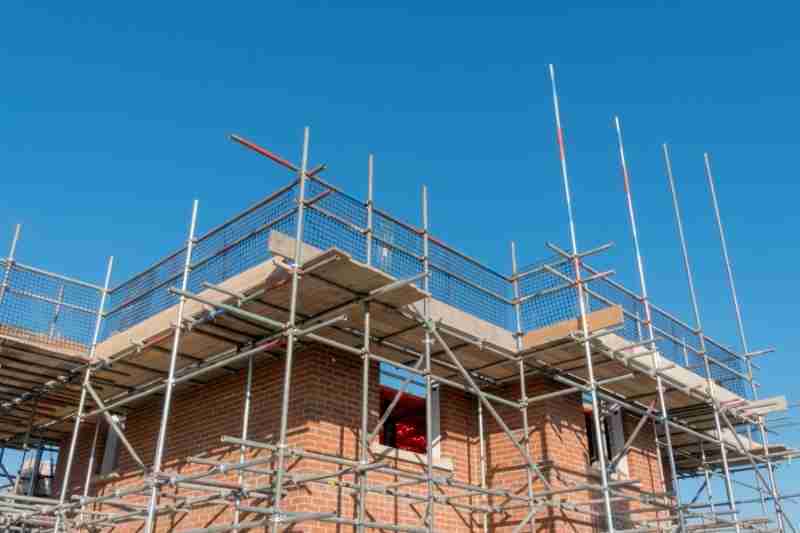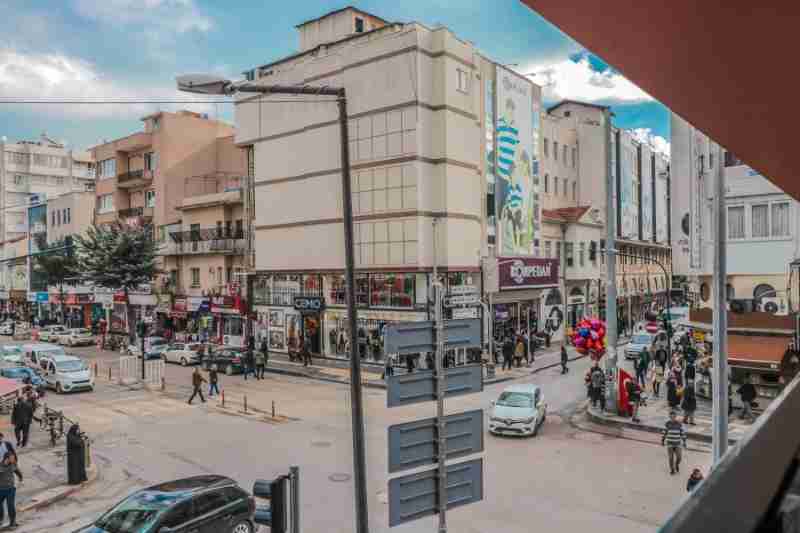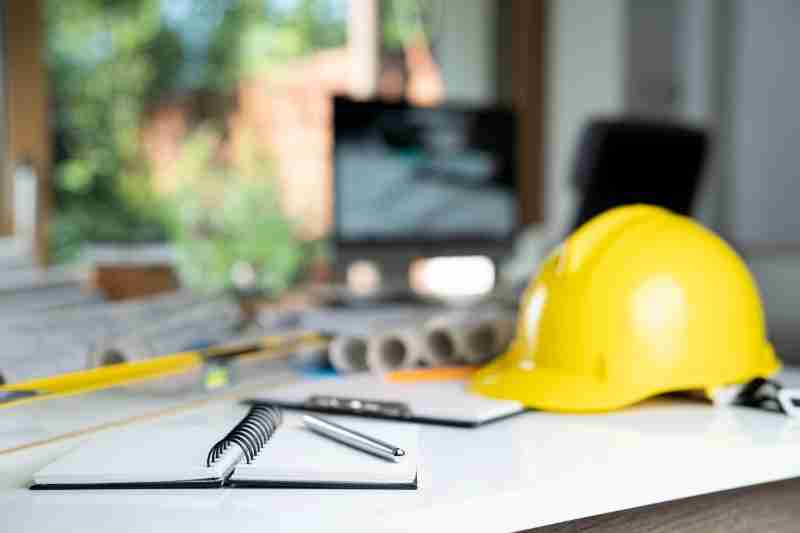
Want to get involved in commercial real estate? Before a business can open and start making its investors money, a lot of work goes into organizing the logistics of constructing that business. That work is called commercial real estate development, and you can get started in it today.
In this post, we explain what commercial real estate development is and how you can break into the industry. Then, we offer a step-by-step guide to walk you through developing commercial real estate.
This post covers:
- What is commercial real estate development?
- How do I become a commercial real estate developer?
- Step-by-step guide to developing a commercial real estate property
What is commercial real estate development?
Commercial real estate development is the act of investing in land and building new properties that businesses can then use to provide products and services. There are many kinds of commercial properties, from industrial warehouses to multi-story residential buildings. And each property requires the services of a developer to build or upgrade the property. These upgrades make the property a suitable place to run a business.
Different degrees of real estate development depend on two factors: the amount of work you’d like to put in and the condition of the plot of land.
For example, many real estate developers find success in purchasing an old, run-down property, fixing it up, and selling it for a profit. Meanwhile, other developers construct new buildings to sell at a higher profit.
While real estate developers often sell their flipped properties to other investors, you have some options. If you’re interested, you can manage the property yourself and generate income by attracting your own tenants.

Some types of commercial real estate properties are:
- Retail
- Office
- Multifamily
- Mixed-use
- Industrial
Note: You may be wondering why you’re seeing “multifamily” on this list. After all, isn’t a multifamily building a residential building? Surprisingly, the answer is no. This designation has to do with the size of a property.
Multifamily properties only receive a residential designation if they have four units or less. A high-density multifamily property with five units or above is actually a commercial multifamily property.
Learn how to get started in commercial real estate development today:
How do I become a commercial real estate developer?
If you’re interested in becoming a commercial developer, these three steps will get you on the way to developing your first property.
To become a commercial land developer, you should:
1. Get educated and certified
Before stepping foot on a property you want to develop, you must be familiar with the work that goes into commercial property development. And there are a lot of areas of expertise. In fact, many developers have degrees in subjects like architecture, business, engineering, or management.
However, if you don’t have a degree, don’t fret. You can still learn, get certified, and prove your expertise in another way.
You might be interested in certifications from these organizations:
- Certified Commercial Investment Member Institute (CCIM)
- MIT’s Center for Real Estate
- Urban Land Institute (ULI)
- Certified International Property Specialists (CIPS)

2. Network
You can join networking groups that are online or in person. For example, LinkedIn is a popular destination for many professionals. Further, many real estate-focused groups have thousands of members.
Better networking opportunities are an understated benefit of any education or certifications you might receive. When you’re in class, focus on making friends and connections. They’re likely to help you land a commercial real estate job — just make sure you return the favor.
3. Get hands-on experience
Even with degrees and certifications, you’re still missing a crucial prerequisite to being a commercial real estate developer: real-world experience.
This means working your way up from the bottom, which may include administrative work for an established developer. Conversely, it may entail physical labor working for a contractor hired by a commercial property developer.
It’s a property developer’s job to coordinate between different people and make sure everybody has what they need. So, once you’ve walked in a contractor’s or an accountant’s shoes, you’ll understand what they need — because you’ll have lived it.
Watch how to become a real estate developer:
Step-by-step guide to developing a commercial real estate property
One of the most complex — and the most rewarding — ways to develop a property is totally from scratch. That means turning a bare piece of land into a thriving place of business.
Here’s a step-by-step business plan for commercial real estate development:
- Spotting an opportunity and doing research
- Deciding on the type of commercial property that will fit best
- Getting input from your local community and municipal government
- Hiring the workers you’ll need
- Overseeing and administering workers
- Handing over the keys
1. Spotting an opportunity and doing research
Before you get to work, you need to decide where you’ll be developing first. Online listings have made finding commercial development land for sale easier than ever. But, you’ll also need to tune out the noise and anticipate which plots of land will make for good commercial opportunities.
Several factors will determine how and where you invest. Depending on factors like location and the stage of the real estate cycle the market is in, you may want to purchase a property in a different area. Additionally, time your investment so that you aren’t negatively impacted by a recession.
2. Deciding on the type of commercial property that will fit best
Depending on the surrounding neighborhood and other factors, you’ll want to use your property in different ways. For example, a pedestrian-heavy area with a lot of foot traffic might be the perfect spot for a restaurant or food retailer. However, it’s not a good fit for an industrial warehouse, where trucks might have a hard time passing through.
You may also want to commission reports that will tell you more details about your property. For example, environmental or site survey reports are great sources of insight.

3. Getting input from your local community and municipal government
You’ll need to inform your municipal government of the type of property you want to develop. And while you may not be legally required to do community outreach, you and your tenants will benefit if you introduce yourself. So, present a friendly face, and do your best to incorporate their feedback into your development.
While you may be a new face in the area, your local municipal government and the established businesses and properties on the scene will have a lot to offer in terms of local knowledge and support.
4. Hiring the workers you’ll need
Carefully select the types of workers that will help you successfully develop a property.
Before you can even start building, you’ll need people to handle surveying and planning. That means hiring surveyors and consultants to give you accurate data about your property’s geography and initial features. These are all things that contractors will need to know about to proceed with construction.
And after you’re past the initial stages, you still need to handle building construction. That means hiring engineers, constructors, and contractors to source and assemble wood, drywall, concrete, and sanitation and utility services. Further, hiring landscapers will ensure a garden style property appeals to consumer expectations.

5. Overseeing and administering workers
While all of your contractors are at work, it’s your job to make sure that they have everything they need. You’ll be in charge of connecting contractors if they need to team up for a certain stage of construction. What’s more, you must make sure everybody’s paid by handling administrative duties like accounting and invoices.
During this step, you’ll also need to keep your local municipal government in the loop. Occasionally, government inspectors will check in on aspects of your development like fire safety and structural integrity. This is in addition to one more comprehensive check after construction is finished.
6. Handing over the keys
You’re done, congratulations on your brand-new commercial property. Now it’s up to you to decide your next steps.
Now that you’re all done, you can market to tenants and start filling up vacant units in your building. Or, you might be interested in moving on to another development project. In that case, you’ll hand the keys over to another investor — and start the process all over again.

Takeaways
- Commercial real estate developers are in charge of taking a property to a state where a commercial business can operate.
- Types of commercial real estate include retail, office, industrial, mixed-use, and multifamily properties over five units.
- To get started in commercial real estate development, you should get educated and certified, network, and get hands-on experience.
- Top commercial real estate developers follow these steps: Spot an opportunity, decide on the type of business that will fit best, get input from your community and local municipal government, hire the workers you’ll need, give them support as they work on the property, and hand the keys over to a new tenant.






